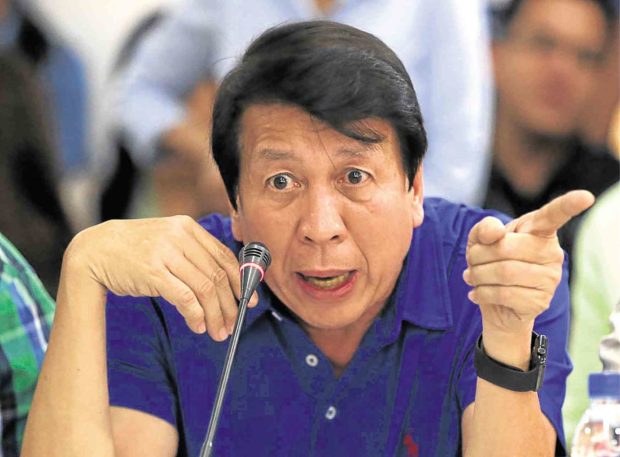
Rodolfo Fariñas
Although President Duterte has commissioned a consultative body to study amendments to the Constitution, it will still be up to Congress to decide whether to accept their recommendations.
“As the name connotes, it is a consultative, or advisory, commission of the President,” House Majority Leader Rodolfo Fariñas said on Friday.
Amending the Constitution is a “power exclusively retained by the sovereign Filipino directly or through their duly elected representatives,” he said.
“[The consultative committee] cannot and will not work in tandem with the Congress,” Fariñas added.
Senate President Aquilino Pimentel III agreed, saying the “legislative [branch] will have its own mechanisms.”
But the idea was generally applauded by both chambers of Congress.
“The President is right in forming a study group on the Constitution whose members cannot be tempted to propose amendments tailored to their own personal interests,” said Senate President Pro Tempore Ralph Recto.
Describing the committee, to be headed by retired Chief Justice Reynato Puno, as a “league of extraordinary gentlemen,” Recto said it should meet expectations of an extraordinary output.
Southern Leyte Rep. Roger Mercado, chair of the House committee on constitutional amendments, said the advisory body “will definitely provide our Congress with more inputs in the historic drafting of our ‘New Philippine Constitution.’”
Deputy Minority Leader Lito Atienza said the panel was “very reassuring because it means the difficult and delicate task of drafting a new Charter will not just be left to the House of Representatives and the Senate.”
But opposition lawmaker Akbayan Rep. Tomasito Villarin hoped “the consultative body will really be heard by both chambers and their inputs included in the draft Charter proposal.”
Albay Rep. Edcel Lagman similarly feared the panel would only serve as a rubber stamp for preconceived notions, engineered by Mr. Duterte himself.
“Any fear that ‘too many cooks will spoil the broth’ is foreclosed because the principal chef in Malacañang controls the recipe,” Lagman said.
But Senate Minority Leader Franklin Drilon said the report of Puno’s committee would still be an important input in congressional reports and debates on proposed amendments.
But the Senate should continue its hearings in Mindanao, Cebu and Baguio, and listen to the testimony of resource persons.
President Duterte created the committee through Executive Order No. 10, dated Dec. 7, 2016, which sought recommendations within six months after which they would be submitted to Congress.
But Mr. Duterte has so far named only 19 of the 25 committee seats.
They are Puno, retired Supreme Court Justices Antonio Eduardo Nachura and Bienvenido Reyes, and former Senate President Aquilino Pimentel Jr.
The other members are Fr. Ranhilio Aquino, law dean at San Beda College; Roan Libarios; Edmund Tayao; Victor de la Serna; Virgilio Bautista; Rodolfo Robles; Julio Teehankee; Eddie Alih; Ali Balindong; Laurence Wacnang; Reuben Canoy; Arthur Aguilar; Susan Ubalde-Ordinario; Antonio Arellano; and Randolph Parcasio.